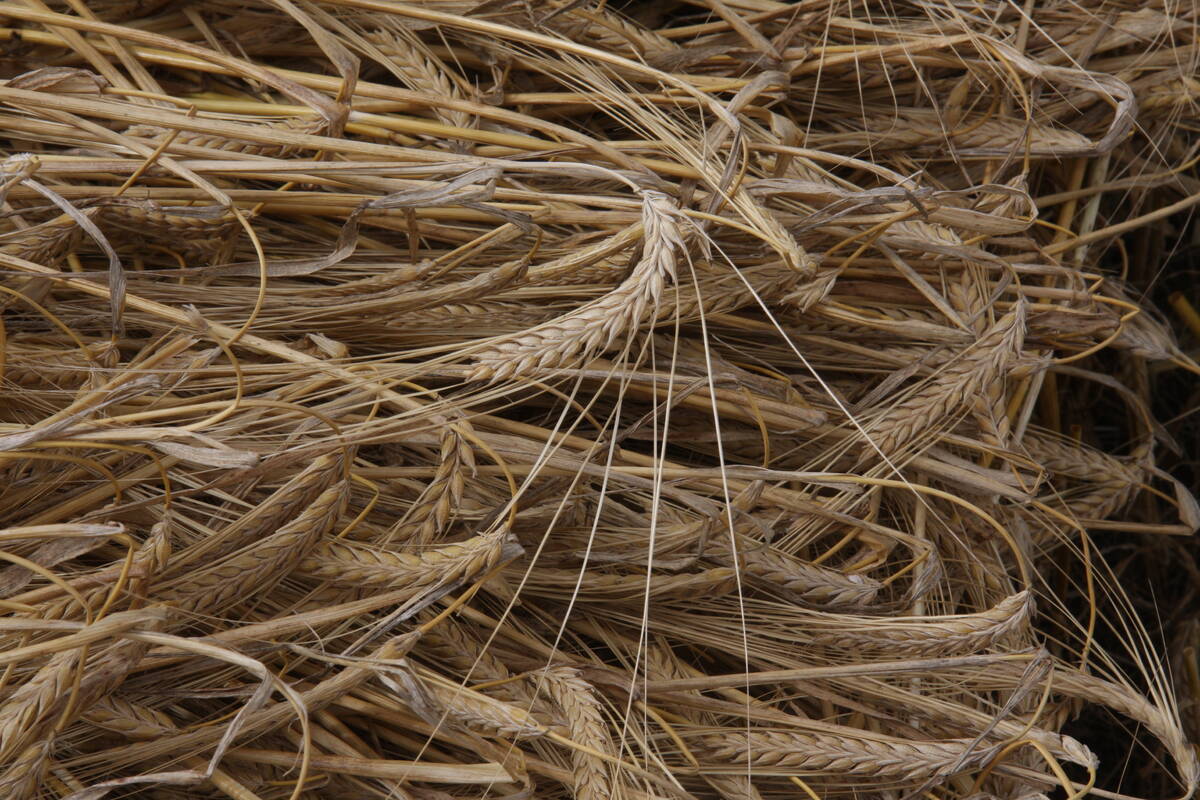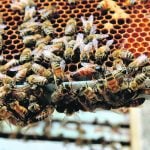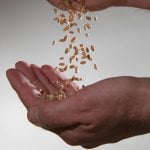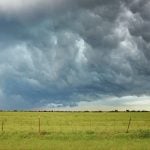Lake friendly | Proposed label would indicate food produced with practices that reduce nutrients flowing into water bodies
In the age of food labels such as grass fed, free run, gluten free, omega 3 and whole grain, a Manitoba organization wants to add another designation — lake friendly.
A coalition of municipalities, Keystone Agricultural Producers, the International Institute for Sustainable Development, the Manitoba Chambers of Commerce, the Red River Basin Commission and the Manitoba government has worked for the last few years on ways to reduce the amount of nutrients flowing into Lake Winnipeg.
Members of the initiative, called Lake Friendly, are encouraging Manitoba residents to take the necessary actions to prevent the eutrophication of Lake Winnipeg. As part of that objective, Lake Friendly is developing a designation for farmers who adopt practices that preserve water quality.
Read Also

Feedgrain prices expected to plummet
A massive U.S. corn crop is keeping a lid on Canadian feed barley prices.
“It would be a way to identify producers that are working on lake friendly initiatives and link consumers, who are concerned about our waters, to those producers,” said Colleen Sklar, the coalition’s executive director.
Sklar hopes such a designation will offer marketing opportunities for farmers. For instance, producers who follow Lake Friendly guidelines might become a preferred supplier of meat, poultry, grain and oilseeds to food processors and restaurants.
“Yes, I believe this to be the first of its kind in Canada, where we identify supply and demand chains and begin to link them together,” Sklar said from her office in Clandeboye, Man.
“Just think, if we could get big companies to purchase only products that were certified … that could really provide some incentive to producers.”
The Lake Friendly designation is in the development stage, but Sklar said Manitoba farmers like the concept.
“We’ve had initial meetings with 10 different producer groups and all the farmers were more than willing to get engaged. Everybody was positive about it.”
Dan Mazier, who farms north of Brandon, said Lake Friendly’s goals are relevant for producers across Manitoba and not just those who farm directly south of the lake in the Red River Valley.
“It’s about the whole watershed,” said Mazier, a KAP vice-president. “The group made an impression on me on how they tie it all together.… The water that runs past my farm (has) an impact on that lake.”
Nutrient loading became a hot issue in Manitoba in the mid-2000s when algal blooms covered hundreds of square kilometres of the world’s 10th largest fresh-water lake.
Many urban residents in Manitoba blame fertilizers and livestock manure for polluting Lake Winnipeg. Consequently, many producers feel the government and public are unfairly singling out agriculture as the villain.
“Agriculture gets a very broad brush,” Mazier said.
Lake Friendly isn’t interested in pointing fingers. Instead, it wants to build on what people are doing right. In the case of agriculture, hundreds of producers are already using beneficial practices, Sklar said.
“The public sometimes doesn’t understand that producers are working to protect water,” she said.
People also don’t always understand the issue is about the choices and behaviour of all Manitoba residents, she added
To foster personal accountability, Lake Friendly has developed a list of actions to preserve water quality so that homeowners, cottagers and municipalities know how to be part of the solution.
Sklar hopes to launch an information campaign this summer, in which every producer in Manitoba will have a Lake Friendly farm book with a list of beneficial management practices connected to water quality.
BMPs include pasture management, completing an environmental farm plan and adhering to the four Rs of nutrient stewardship: right rate, right time, right place and right timing.
Mazier said the Lake Friendly designation represents an opportunity to educate urban residents about environmental stewardship on Manitoba farms.
“I’m doing my part.… This is what I’m doing,” he said. “It’s really a positive message on farming…. I think that’s where they (producers) are getting the bang for their buck (if they join this program).”
Water Stewardship Inc., a group in the Chesapeake Bay area of the United States, is developing a similar effort to designate farms according to water quality practices.
Excessive flows of nitrogen and phosphorus have caused biological dead zones in Chesapeake Bay, similar to what has happened in the Gulf of Mexico. Project managers are working with corporations to develop a food supply chain that reduces the amount of nutrients entering the estuary.
Proponents of the Lake Friendly designation are concentrating on Manitoba farmers, but scientists have estimated that 50 percent of all nutrients entering Lake Winnipeg originate from other locations in the lake’s massive watershed, which includes Saskatchewan, Alberta, Minnesota and North Dakota.

















